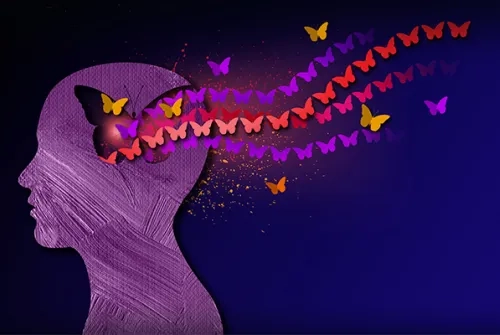Alo Yeditepe
Alo Yeditepe
Initial Symptoms of ALS Considered To Be Nerve Compression
ALS, known as the disease of motor neuron, cells, seriously affects the lives of both the patient and their relatives. Although studies on treatment are ongoing, the Neurologist, who reminds us that there is no definitive treatment for the disease yet, pointed out the importance of early diagnosis of the disease. However, he explained that confusing the symptoms of the disease with a large number of diseases may delay the diagnosis.
ALS, which is better known by some well-known athletes, is defined as a motor neuron disease that occurs as a result of the self-disease and death of cells called motor neurons in the brain and spinal cord, which enable our muscles to work, for an unknown reason. There are some assumptions about the emergence of this disease, the cause of which is still unknown. Yeditepe University Koşuyolu Hospital Neurology Specialist remarked that radioactivity, which is listed as a universal factor, exposure to various harmful rays, exposure to harmful drugs and chemicals, heavy metals, some infections (especially some viral infections), poor nutrition, being under pressure can be a factor in the emergence of the disease. Explaining that genetic factors are effective in about ten percent of the patients, stated some genes do not work or work incorrectly in these patients.
Middle Aged People are at Risk
According to the information provided by our neurologist, men are less likely to have ALS than women. Although the cause is unknown, the disease is more common in men than women. Stating that everyone in the average age group is in the risk group for ALS, "The average age of onset can be seen more frequently after the age of 40 and in the 50s. It is unlikely to be diagnosed for the first time before the age of 30 and after the age of 80, but everyone between the ages of 40 and 80, especially males, is a candidate for this disease.”
The First Sign is Mild Muscle Weakness
Our specialist stated disease manifests itself with mild weakness and muscle atrophy in the early period, usually involving a certain muscle area. Other complaints that may indicate ALS is as follows: “The first findings are mostly unilateral and occur in the hand. For instance, there may be a weakness in the thumb in the right hand and a decrease in the interference in the palm of the thumb. Swallowing disorder may be the first symptom in some patients and speech disorder in others. Less likely is the lower leg due to the thawing of leg muscles. Since the patient cannot lift his/her foot properly, it can cause tripping and falling while walking."
Mild weaknesses can be ignored for a while. Symptoms of swallowing or speech impairment can be perceived as allergies or reflux.”
It Is Considered To Be Nerve Compression
Noting that ALS symptoms are also seen in many different diseases, our expert said: “Nerve compression in the wrist, nerve compression in the elbow, or nerve compression due to hernias are much more common than ALS. Nerve compression in the wrist is known as “carpal tunnel syndrome” and nerve compression in the elbow is known as “cubital tunnel syndrome”. Nerve compression due to hernias is quite common in both the waist and neck region imitating ALS. Some cancer diseases can also imitate ALS, and these may need to be examined. Muscle diseases can be confused with ALS. The test called EMG is very important for the diagnosis of als in the differentiation of nerve compression and muscle diseases.”
If You are in Your 40s, the Situation Is Critical
Our specialist stated the probability of the disease occurring after the age of 40 is much higher and that the diagnosis is mostly made in the 5th and 6th decades. As the age of diagnosis decreases, the problems that the patient may experience increase. “Although there is a possibility of a slightly better course in patients with a later diagnosis, this is not a definite rule. Some patients are diagnosed at an early age and whose disease progresses very slowly, as well as patients who are diagnosed at a late age and whose disease progresses very quickly.
Good Care Extends Life Span
Due to ALS, patients are at risk for some diseases since they do not eat well and do not move well. Our specialist, who stated that all associated diseases accompanying ALS occur due to loss of function caused by ALS, also added the following: “If the patient is well cared for, fed very well, and given very good physical therapy, ALS patients can survive for a very long time. The best example of this is Stephen Hawking, who we recently lost. If patients recognize their disease, avoid overly challenging movements, but also exercise regularly and according to their capacity, eat well, and are protected from other diseases, the course of the disease will be positively affected.”
Patient-Physician Communication is Very Significant
Drawing attention to the importance of communication of patients and their relatives with physicians during the treatment process, Yeditepe University Hospital Neurology Specialist continued as follows: “Patients should have a doctor with whom they can communicate well, and they should be in harmony especially in terms of nutrition and respiratory support at the times recommended by their physicians and regarding the treatments recommended by them. Patients should not consult a doctor only when a problem arises, they should be under the control of a doctor regularly. This attitude is ideal for the doctor, the patient, and their relatives during the treatment. In advanced stages, patients now need to be supported with devices in terms of respiration and nutrition. Mistakes are usually made in the advanced stages. This is a process that is considered somewhat difficult by the patient or their relatives. The patient may experience difficulty due to respiratory or nutritional deficiency. For this reason, one should not be too stubborn when the doctor says that it is necessary to connect the device for breathing or feeding.
This content was prepared by Yeditepe University Hospitals Medical Editorial Board.
”
See Also
- What is Parkinson's Disease? What are the Symptoms of Parkinson's Disease?
- Brain Health is Determined by Lifestyle, Not Age!
- Pudendal Nerve Compression
- Current Approach to Dizziness Treatment: Balance Perception Rehabilitation
- What is a Stroke (Apoplexy)?
- How to Protect Brain Health?
- Epilepsy Symptoms, Diagnosis and Treatment Methods
- Multiple Sclerosis (MS) Disease, Symptoms, and Treatment
- What is Myasthenia Gravis Symptoms and Treatment Methods
- Persistent Fatigue of Unknown Cause Could Indicate MS!
- Neurological Involvement
- Lumbar Disc Herniation (Herniated Disc)
- What is Epilepsy?
- 10 Important Myths in Alzheimer's Disease
- Consanguineous Marriage Increases the Risk of Epilepsy 40 Times
- School Stress Invites Sleepwalking
- Daughter-in-Laws Care for Alzheimer's Patients
- As Insomnia Increases, Its Harmful Effects on the Immune System Also Increase
- 8 Tips for Better Sleep
- Vitamin D Deficiency Disrupts the Course of MS
- Healthy Microbiota Reduces the Risk of Alzheimer's
- Don’t Risk Your Brain!
- Weather Change Triggers Migraine Attacks
- Patients with Refractory Epilepsy May Lose Time Until They Receive a Proper Diagnosis
- What is MS Disease (Multiple Sclerosis)?
- Migraine and Its Treatment
- Pay Attention to the Temporary Complaints of MS!
Alo Yeditepe






